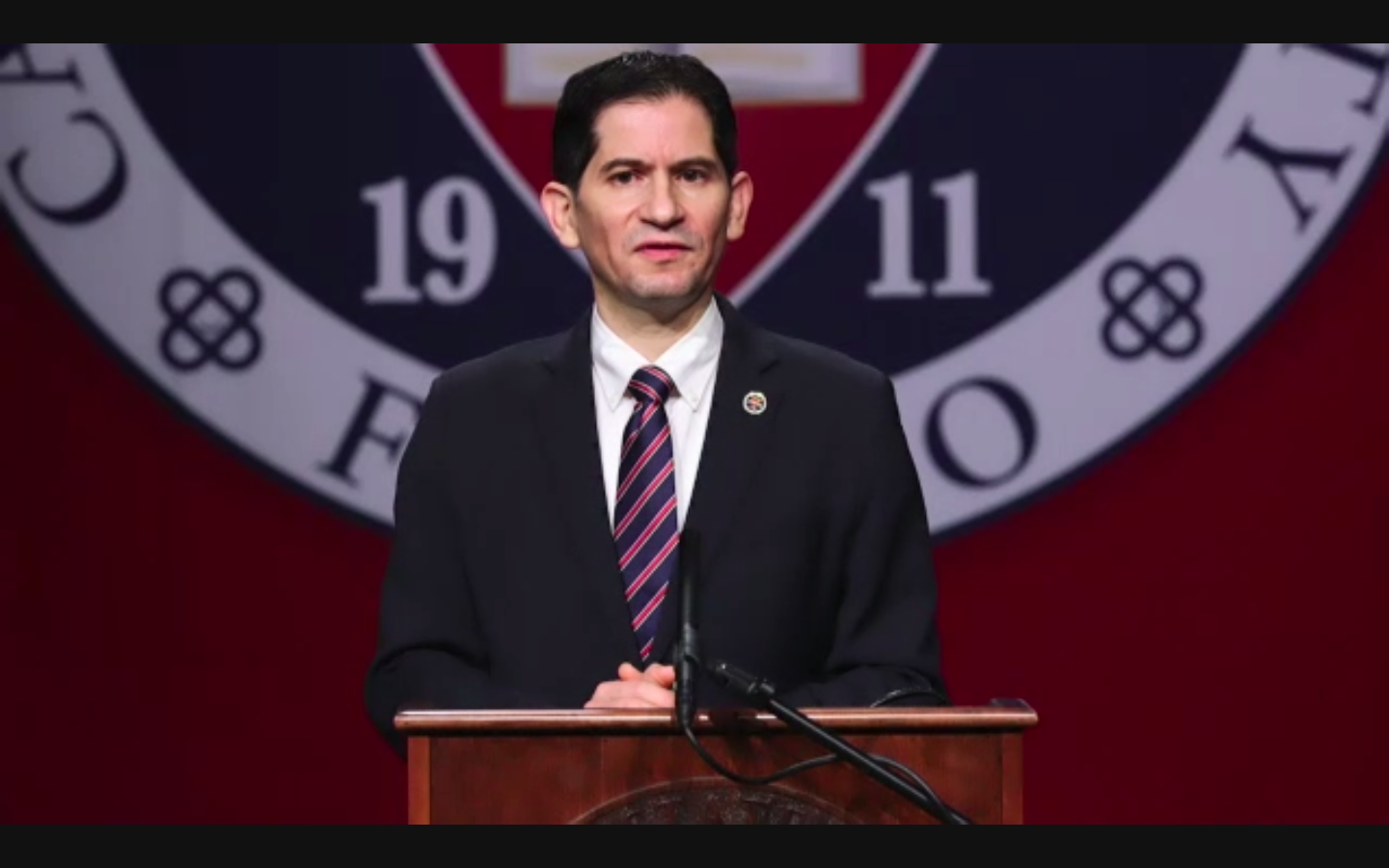Interim President Saúl Jiménez-Sandoval discussed the university’s plans for safely reopening in fall 2021, as well as the regulations and requirements that will be in place for returning to in-person learning at the COVID-19 virtual discussion on April 27.
Fresno County Department of Public Health (FCDPH) members public health physician and family medicine physician Dr. Trinidad Solis and assistant director David Luchini answered community questions about the COVID-19 vaccine.
Fresno State students, staff and faculty were invited to the virtual event and were encouraged to ask questions to panelists.
In light of the announcement that the California State University (CSU) system plans to require the COVID-19 vaccine once they receive full approval from the Food and Drug Administration (FDA), Jiménez-Sandoval addressed concerns regarding whether or not the vaccine would be approved in time for the fall 2021 semester.
“We are expecting the vaccine to be fully approved by the end of May. So we will have plenty of time before August hits,” he said.
Jiménez-Sandoval also answered questions about in-person learning as well as any hybrid models for fall 2021, in particular noting that the university will work to be as flexible as possible for students.
Approximately 30% of classes are planned to remain virtual. It is anticipated that, by fall 2022, the campus will return to normal operations, he said.
Jimenéz-Sandoval said HyFlex classrooms will be introduced at Fresno State this fall and allow for active participation with in-person students as well as students remaining virtual with speaker systems installed in these classrooms.
“We do have the hybrid model; we have the HyFlex classrooms that are now at Fresno State. We have 50 of those classrooms here,” Jiménez-Sandoval said. “I know that our team has been really, really focused on getting that ready for fall 2021… where it could be that, let’s say, 60% or 50% of the students are in-person. And then the other students, for various COVID-19 related reasons, will be virtual.”
It was also asked whether certain online courses will still be available for students who do not want to get the vaccine and do not plan on returning to campus, as well as how information would be distributed on what courses will remain virtual and which will be in-person.
“It depends on many, many things… there are certain classes within certain disciplines that simply cannot be taught virtually. Some of these include labs, some others include the arts. Others include nursing, for example, and some of these classes have to be taught face-to-face,” Jiménez-Sandoval said.
Additionally, Jiménez-Sandoval asked for patience from the Fresno State community regarding the implementation of the vaccine mandate as more information will be provided from the CSU.
When asked about what steps would be taken if a student were to contract COVID-19, Solis said protocols would be followed according to the Centers for Disease Control and Prevention (CDC) guidelines for 10-day isolation.
Jiménez-Sandoval said staff have received contact tracing training from the county and efforts would be made to assess where potential outbreaks originated from.
“If it is widespread contact then absolutely we would quarantine at that time,” Jiménez-Sandoval said. “But we would… implement the protocols that we have here in Fresno State.”
Jiménez-Sandoval emphasized that, currently, the Fresno State community has not experienced any widespread contact of COVID-19 and that the university will continue to maintain the mask mandate, hygiene protocols and COVID-19 regulations.
For those planning to return in fall 2021, efforts have been made to ensure safety through screenings as well as adjustments to facilities such as filtration and cleaning.
“We do plan to have the daily health screenings, we do plan to have the temperature checks and we also do plan to require the face coverings as well. We are taking great, great strides in maintaining our environment as safe and as clean as possible,” Jiménez-Sandoval said.
Jiménez-Sandoval added that two exceptions will be made for the COVID-19 vaccine mandate. Individuals with religious and medical reasons won’t be required to get the vaccine, he said.
“I’m grateful for promoting the health of our environment and our community overall. And I really want to strongly encourage our students or faculty and staff to get their vaccines before fall 2021,” Jiménez-Sandoval said at the end of the discussion.
Associated Students Inc. President Elizabeth Rocha-Zuñiga and Fresno State football player Dontae Bull were also on the panel to share their personal experiences about the COVID-19 vaccine, both sharing the sentiment that receiving the vaccine was their first step towards a feeling of normalcy.
“I decided to get the vaccine because I felt like I needed to feel secure in visiting my family and seeing my loved ones as well,” Zuñiga said.
In particular, she said those concerned about taking the vaccine should consider the factors impacting their decision.
“So I would say, in my perspective, to think about your safety and your health, your loved ones and most importantly, think about the folks who have an increased risk for severe illness from COVID-19, and that we’re all in this together,” Zuñiga said.
Bull expressed support for those who feel hesitant about receiving the vaccine, emphasizing that they should feel comfortable in making the decision themselves.
“The doctors here are giving us great information because it’s coming from a very pure source… I’ve talked to some of the guys on my team because a lot of guys are stressed out about it,” Bull said. “I made the point that I would be… one of the first 10 guys in our team to do it just because I wanted to show that it’s going to be ok and it’s going to benefit us in a way.”
As more information comes from the CSU as well as from Fresno State, Jiménez-Sandoval said updates will be provided to students through their student email as well as through Fresno State social media.




